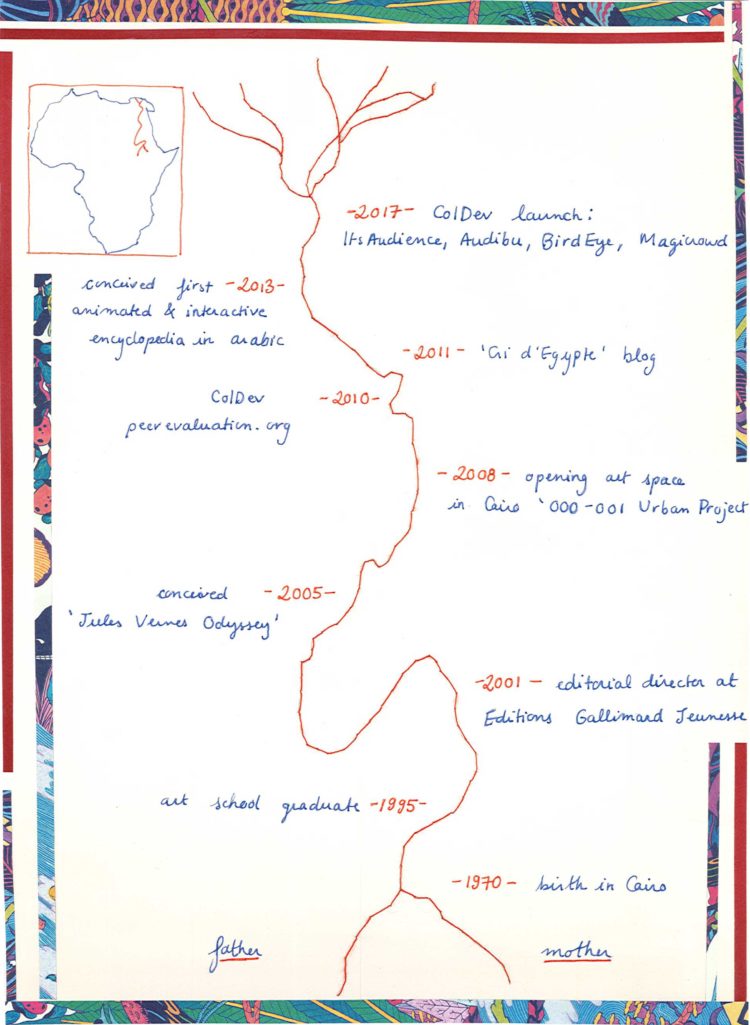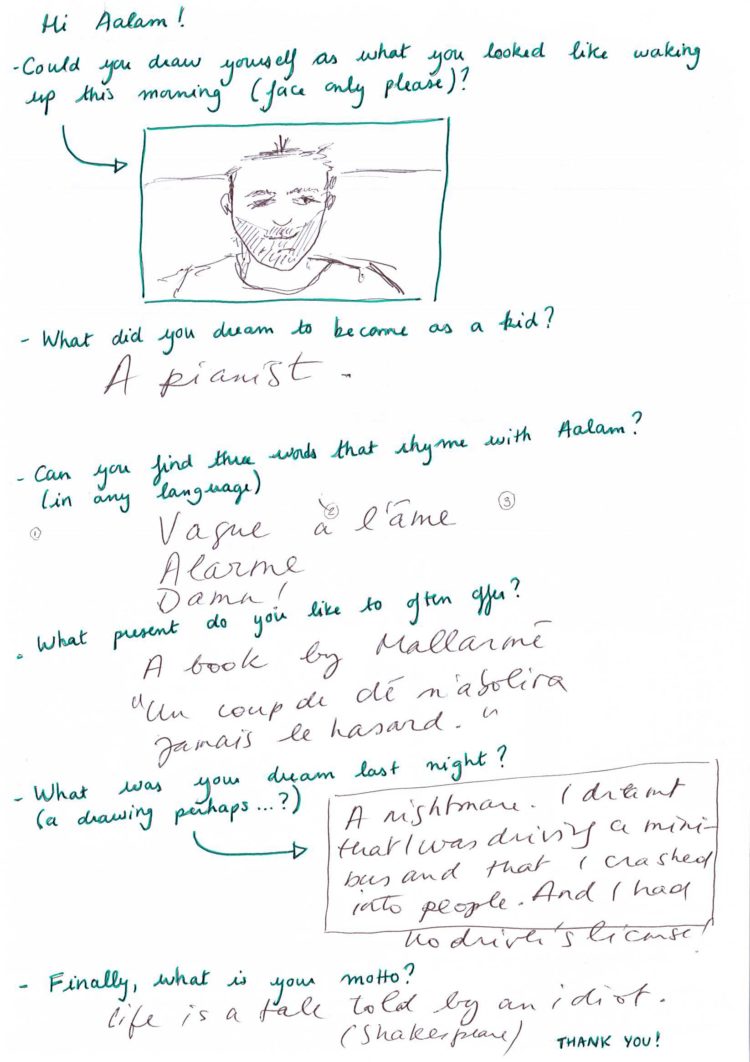Aalam Wassef isn’t someone you forget. Everything the Egyptian activist and artist does is marked by his generosity, respect and desire to share. He has managed to bridge the daunting gap between his personal beliefs and professional achievements.
During the Arab Spring, Aalam took action and gave a voice to the Egyptian youth and offered visibility to the national conflict around the world. He is an ardent advocate for democracy and freedom of speech.
As a co-founder of ColDev, he has developed a collection of products that focuses on notoriety and reputation in the digital world: identifying legitimate sources of knowledge, sharing expertise, gathering qualified feedback and extracting insights from data. He knows he’s living in a post-truth world.
Aalam is a versatile man: a plastician artist, activist blogger and entrepreneur. From an interview came a conversation, one that I reflected upon and now share with you through the guide and drawings below.
‘I think that the millennials will shape a different life: they were born in a world which is very different from the one you grew up in, which is excessively violent and insecure, which is very digital, where information as we realise it is almost untrustworthy, where work is scarce, where unemployment is wide-spread, where education is too slow for how fast disruptions are, where climatic considerations have become worrying.
‘So they are going to have a survival reflex that we don’t know the impact of.’
‘I see the privatisation of social media, especially by Facebook, as a real step back and a pity. Facebook created this environment which is made of walled gardens and controls people’s access, algorithmically, to each other, to information, to news, to ideas, and it skewed the potential of people being able to connect with each other and share information via the internet.
‘And now Facebook as the biggest gatekeeper became destructive to the natural circulation of votes, connections and conversations. For me this is a limitation.
‘Now, from the outside you would say it’s not limited, people can communicate with whoever they like, actually no, it’s skewed. The wind was going into one direction, and now it is going into another direction.
‘Google in some sense is also doing that with the search engine: why is it that certain things are on top of the page and others not? Anything that actually touches data is transforming. There is no such thing as objectivity.
‘The principles they (Facebook, Google) use to organise all the information in the world is questionable. For example, it’s based on popularity, in a world that we knew as basing knowledge on authority, not popularity.
‘The Trump election showed us the effects of popularity versus authority: fake news was made popular because people liked it and it eventually won. Does popularity guarantee you anything? It doesn’t. Now people look at the number of views and think: ‘It has a lot of views, it’s legitimate.’
‘One of the big issues today is fake news on the internet and the terrifying impact it can have on the world. It has to do with the questions of trust and reputation of information.
‘This is exactly what had us begin ColDev in 2010 with a project called PeerEvaluation. We wanted to work out how can we make it so we are sharing online content that is validated, vetted and reviewed by people who have authority?
‘We always revolved around the questions of reputation building, reputation vetting, authority in all sorts of ways, and this is the connecting point between all the projects that we developed.’
‘Cairo is home so you can’t explain these things, it just is. Even if it had been hell you would still like it. And it is hell… by the way. A hell I go back to running!
‘My connection to Cairo is very profound. But there is also something I like, but maybe it’s because this is what I am conditioned to like, it’s all of its imperfections. The noise, the youth, 60 per cent of the population is below 21, so it really has a very special energy.
‘I’m so used to seeing babies and teenagers all over the place that it strikes me each time I come back to Europe. I like this creative disorder, where everything is possible. It is like a cacophony which is somehow reassuring and colourful instead of this perfect order. I feel more alive in Cairo.’
‘I am going to remember 2016 for its politics, for its terrorism, for Trump, for a lot of pain… it was a bad year. The consequences of the Paris attacks… a lot of sleepless nights.
‘A lot of questioning about ISIS, about the world instability, and this feeling that the future is in constant threat. And I am very eager to know where it goes.
‘In 2018, I’d like to look back and think to myself that 2017 was a pretty good year.’


